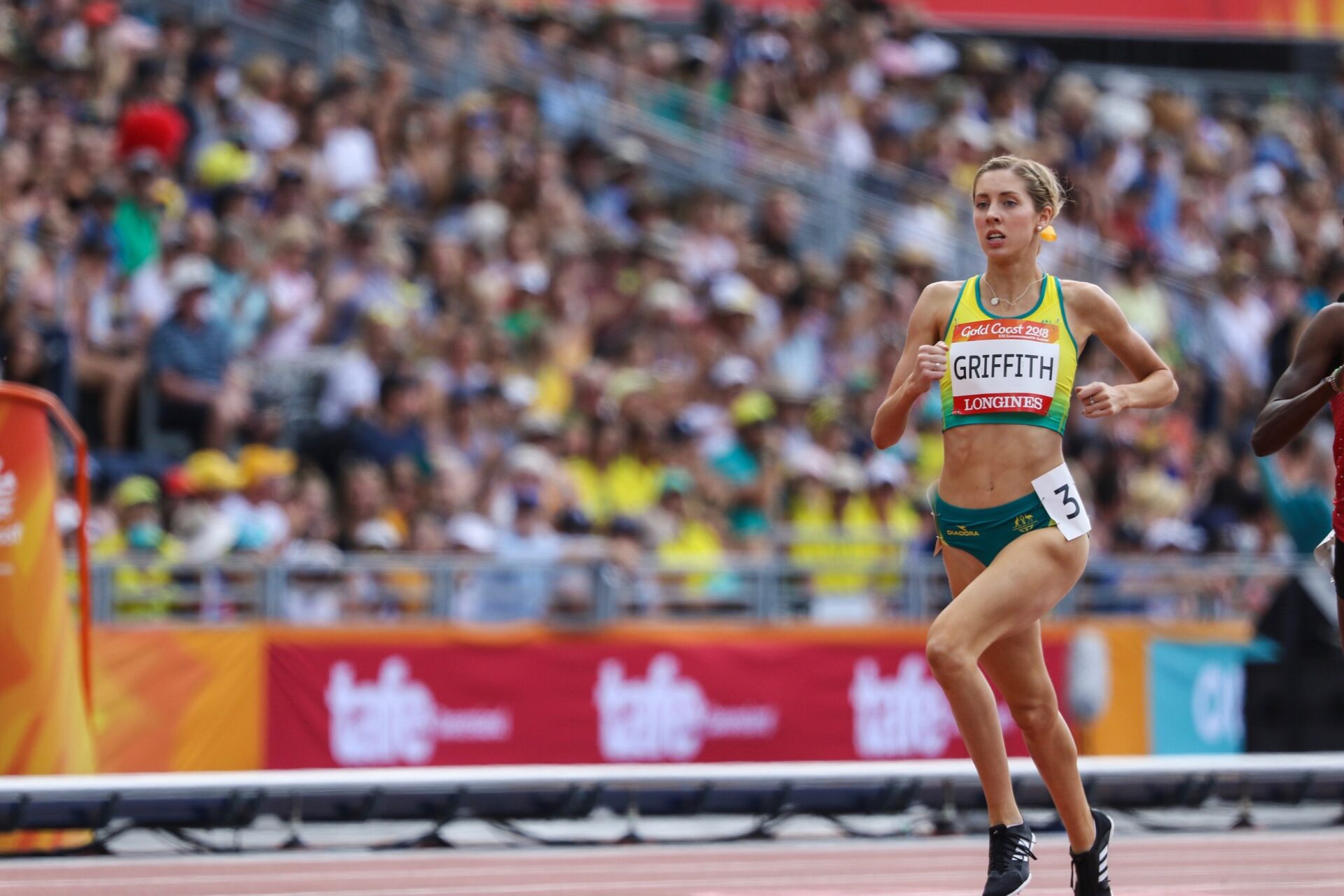
Interview with Georgia Griffith
Our very own SportUNE is hosting the 73rd Annual UNE Sports Awards in Armidale on the 20th of September, and this year we are lucky enough to be joined by a very special guest, Australian middle-distance running champion, Georgia Griffith.
Georgia has represented Australia at many prestigious tournaments all over the world, including the World Championships, the World University Games, and the Commonwealth Games, and in 2021 she was selected to represent Australia at the Tokyo Olympics.
Her impressive trophy cabinet includes a second-place finish in the 1500 meters at the 2019 World University Games in Italy, a first-place finish in the 1500 meters at the 2019 Oceania Championships and a fifth-place finish in the 1500 meters at the 2018 Commonwealth Games.
In the lead-up to the UNE Sports Awards, TuneFM interviewed Georgia about her sporting career to offer some behind-the-scenes insight into the life of an elite athlete. We’ve shared an excerpt of the interview below, so read on to learn more about her experience as a student athlete.
Q. I understand that the two main events that you compete in are the 800 and 1500 meters. Is that right?
A: Yeah, the 800 and 1500. I think the 1500 is probably a bit more of my focus now, but I still really like the shorter, painful 800 metres as well.
Q. What draws you to those particular events over others?
A: A big factor is I’m probably better than I am best at them compared to sprinting. I’m not a sprinter and unfortunately, a 5k, or 10k marathon is a bit too long for me and so that middle distance, 8 and 15 is my sweet spot. And to be honest, I’m not biased at all, but I think they’re pretty entertaining events to watch as well.
Q. What is different about competing in these middle-distance events compared to, say, a shorter event like 50 or 100 meters?
A: I think there’s a bit more tactics that go on, as opposed to the shorter events from 100 to 400 where you have your own lane, and you can kind of focus and switch off and just think about yourself. [For] the 800 and 1500, you’ve got to really think about what the other competitors are doing and if there’s a move that’s made throughout the race, you can’t zone out. You’ve really got to make sure you’re on it otherwise you’ll miss the race. So, I think that’s quite a fun pattern. Each race is a bit different, which is, yeah, quite fun.
Q. Were you initially concerned with balancing studying with training and competing, especially as you were overseas for weeks at a time, running races, or even just training? Were you worried about how you’d be able to balance the two?
A: Yeah, definitely. [My] first year of uni, athletics wasn’t as intense. I wasn’t making the Australian teams. And so, it slowly started creeping up on me. And I was like, “Oh, hang on, this is actually quite challenging.” Trying to fit in, you know, taking off my uni as well as going overseas for so long. So that’s when I really started leaning into the services that they provided [at Monash]. So that was incredibly helpful.
Q. Given that you completed a Bachelor of Design and Business, is that an area that you would like to go into beyond your athletics career?
A: Yeah, I’m really interested in that creative side as well. So like brand management or advertising. I definitely think I’m gonna be quite a novice when I start and just really keen to explore what’s out there and see what I really like. And yeah, it will be a bit of trial and error, but I am really looking forward to that next chapter once I finish running.
Q. Do you think that there is a perception amongst younger athletes that they won’t be able to pursue their athletic careers and their athletic abilities while also studying at a tertiary level?
A: Yeah, I definitely think the jump from high school to uni is actually quite challenging. In high school you have time set aside for sport and class studies, so you’re able to do both. I definitely found for athletics, my sport, going to uni a lot of other people did drop off athletics because it was quite hard to balance, you know, when you’re trying to be social, go to classes and then also keep that structure of athletics. So that’s why I really think having, you know, the support of the uni makes such a big difference.
Q. Do you would do you have any advice for athletes who are looking to study while competing and training at an elite level?
A: It can be really tough. I think what helped me was having a really good plan. So, at the start of the semester, I’d go and have a look at, okay, these are some really busy competition periods, and these are some busy times for study. Then, emailing my tutors in advance and saying, “Hey, this time is going to be quite busy for me. Is there a way we can work around this?” And being aware as well. So, when it came to those kinds of hot red spots that I like to call them in my calendar, I was able to manage them a bit more effectively because they didn’t [surprise] me and I was a bit more prepared for them. So having a plan and detailing my week as well, were some really effective strategies that helped me balance both.
Come along to the 73rd Annual UNE Sports Awards on the 20th of September to hear Georgia speak in person and to celebrate the achievements of our UNE athletes.
Listen to Georgia’s full interview with TuneFM here.


